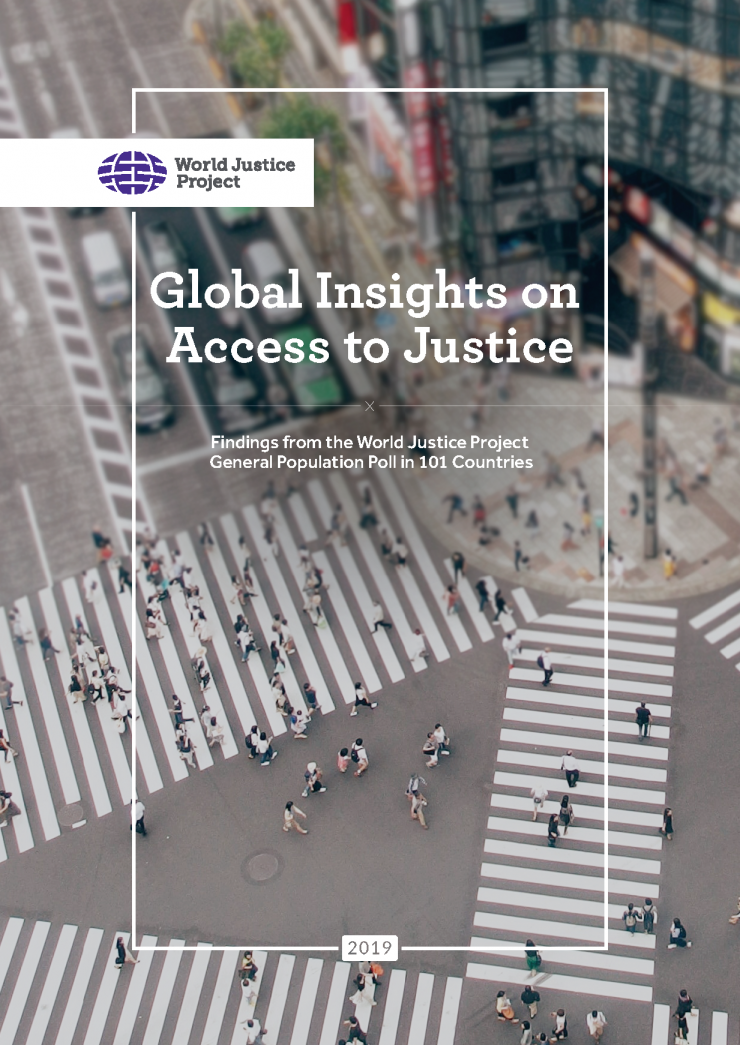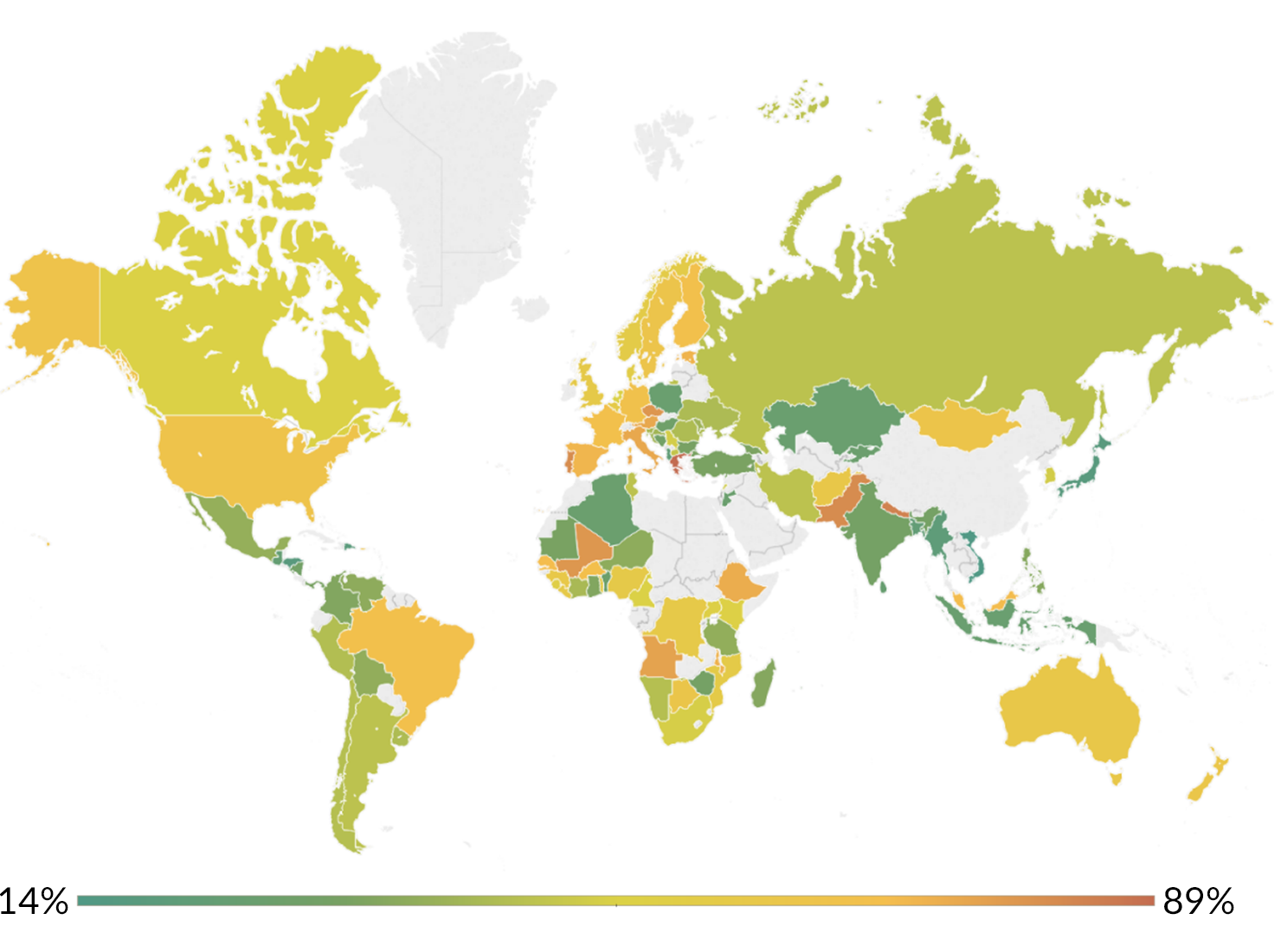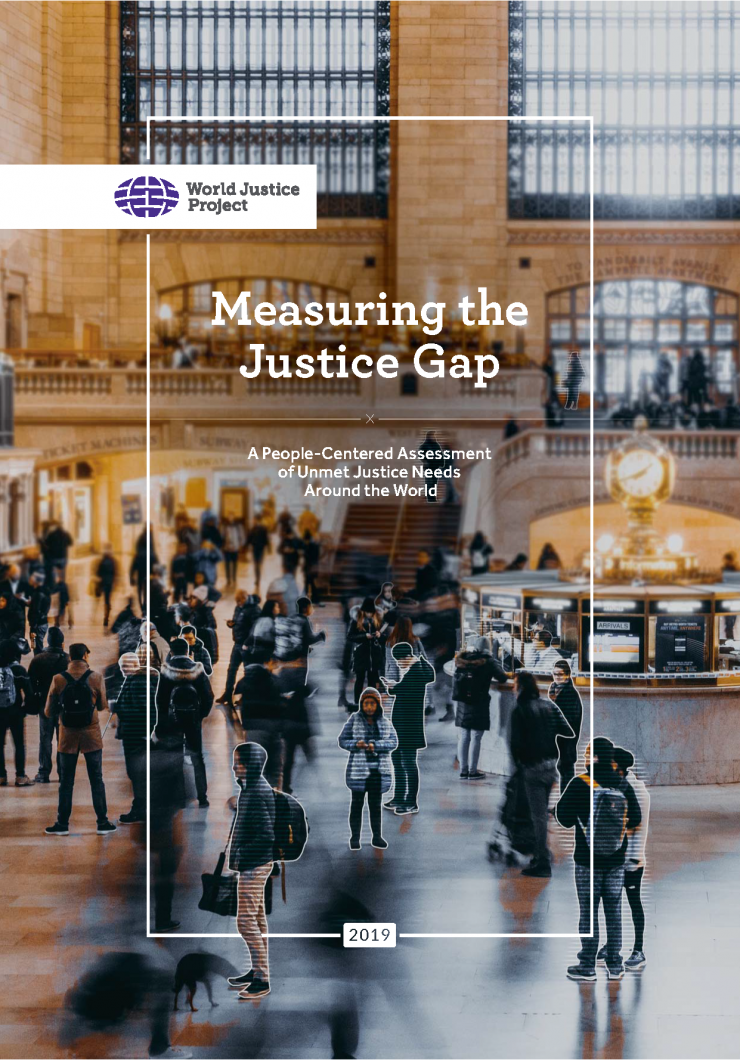
Sustainable Development Goal (SDG) Target 16.3 calls on countries to "Promote the rule of law at the national and international levels and ensure equal access to justice for all."
The two SDG global indicators for target 16.3 adopted by the UN General Assembly in 2016 both focus exclusively on criminal justice, leaving out the everyday civil justice needs experienced by most of the population, and especially by groups most at risk of being left behind. There is a crucial opportunity now to address this gap in the global monitoring framework for the SDGs. A proposal for an official civil justice indicator has been submitted to the Inter-Agency and Expert Group on SDG Indicators (IAEG-SDGs), which is currently conducting a Comprehensive Review of the Global Indicator Framework. In October 2019, the IAEG will convene to agree on proposed changes to be adopted by the United Nations Statistical Commission in 2020.
Why is civil justice important for sustainable development?
Civil justice problems are ubiquitous. Around the world, people face a variety of everyday justice problems related to employment, housing, education, health, and family life, among many others. As part of its Global Insights on Access to Justice® 2019 study, the World Justice Project polled more than 100,000 people in 101 countries to better understand how ordinary people around the world navigate their everyday justice problems. Approximately half (49%) of people surveyed experienced at least one legal problem in the last two years, and more than a third (36%) experienced a serious legal problem.
1.4 billion people cannot meet their civil justice needs. As part of a justice gap assessment to estimate the number of people who have at least one unmet justice need globally, the WJP estimated the number of people who cannot meet their civil and administrative justice needs in particular, due to low levels of legal capability, inability to access appropriate help, poor resolution process, and/or poor outcomes. Of the estimated 36% of people in the world who have experienced a serious legal problem in the last two years, more than half (51%) are not able to meet their civil justice needs.
Proportion who Experienced a Legal Problem in the Last Two Years

The civil justice gap hinders human development. 43% of those surveyed by the WJP reported that their justice problem adversely impacted their life, with more than 1 in 4 people (29%) reporting that they experienced physical or stress-related ill health as a result of their legal problem and more than 1 in 5 people (23%) reporting that they lost their job or had to relocate. This adds to a growing body of research demonstrating that the inability to resolve legal problems reinforces the poverty trap and undermines human potential.
The civil justice gap hinders economic development. For both developed and developing countries, the failure to provide justice is costly. Just three types of impact resulting from justice problems – lost income, damaged health, and the cost of seeking redress – cost OECD countries between 0.5 and 3 percent of their annual GDP. Everyday justice problems cost more than 2 percent of GDP in most low-income countries.
How will an official SDG indicator on civil justice help?
Official SDG indicators help hold governments accountable for delivering results. The inclusion of target 16.3 on rule of law and equal access to justice in the SDGs confirmed that justice matters for the development agenda and its commitment to leave no one behind. By adopting official indicators on criminal justice in 2016, governments agreed to be held accountable for reporting progress in this particular domain of justice. It is now time to do the same for civil justice.
Official SDG indicators are vital for measuring progress. An official indicator on civil justice will help policymakers better diagnose the most common civil justice problems; understand their impact on peoples’ social, economic, and physical well-being; and measure progress in helping people meet their civil justice needs. Collecting national data on justice is not an end in itself, but rather a means of designing appropriate interventions that will actually deliver on the promise of Goal 16 to realize justice for all.
Official SDG indicators drive investment and partnerships. A universal benchmark to measure and monitor access to civil justice will help governments and donor agencies to invest in scaling up data collection efforts on access to justice. This includes investments to improve the quality and availability of both official and unofficial sources of data and to address the capacity gaps and methodological challenges that statistical agencies face when collecting and analyzing data on civil justice matters. Most importantly, it will help drive cost-effective investments in programs and policy interventions that lead to measurable change in the area of civil justice. Partnerships between government, civil society, and the private sector will be essential for designing meaningful justice indicators, strengthening the capacity of national statistical offices to collect these data, and using it to deliver results.
Where can I learn more?
To learn more about the current state of access to civil justice, SDG16, and recommendations for delivering justice for all, see: the Justice for All report from The Task Force on Justice, the SDG16 Data Initiative 2019 Global Report, and these reports from the World Justice Project:









